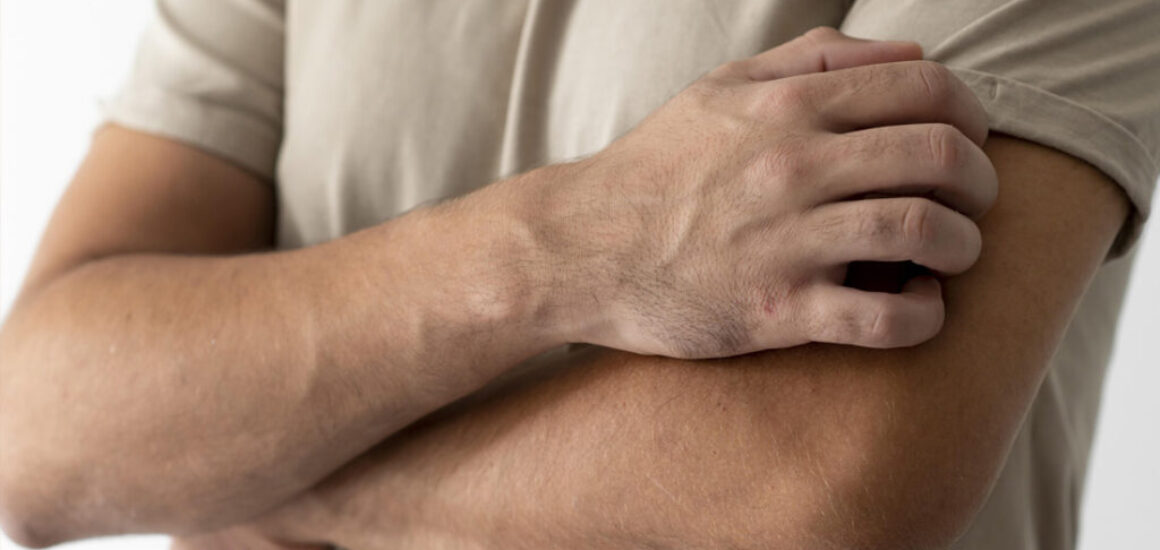Blog ringworm skin disease
Three Ringworm FAQ’s
Ringworm infections are characterized by round, red and itchy spots on the skin, hair and nails. This infection is caused by the tinea fungal family. The infected spots of skin may appear for four to 14 days, while ringworm on your scalp may cause bald spots. It’s a common skin condition that’s been around for a long time but seldom talked about. Here are three FAQ’s about ringworm:
- How contagious is Ringworm? The short answer is VERY. The fungi that can cause ringworm infections vary, with up to 40 known species. Its spread can be through skin-to-skin, skin-to-surface, and even transmitted via humid or moist shared areas like gym locker rooms. Infected objects like blankets, clothing, or towels can also be methods of transmission from one person to another. This type of fungi survives on dead skin and hair cells, so it just sits on the skin or scalp. It is contagious even during its incubation period (which is about 3 weeks).
- How can infection be prevented? Practicing good hygiene will drastically reduce your chances of getting infected. Wash your hands frequently, especially after playing with pets. Trim your nails regularly and keep them clean. Keep your clothes clean, most importantly your socks and underwear. In places like the gym, wipe down equipment before and after use, plus avoid being barefoot in the locker room.
- Does it go away on its own? Yes but it’s not a good idea to let it run its course, as you can end up infecting other people as well. Not to mention that ringworm can also cause bacterial infections like dermatitis and complicate any existing skin conditions you may have when left untreated. The best course of action is to go to your dermatologist where they will carefully examine the areas of infection, and prescribe treatments like ointments or creams. Keep in mind that you MUST complete antifungal medication cycles in full, even if the visual symptoms have gone away. If you think you may have a ringworm infection, contact us today for immediate treatment.




